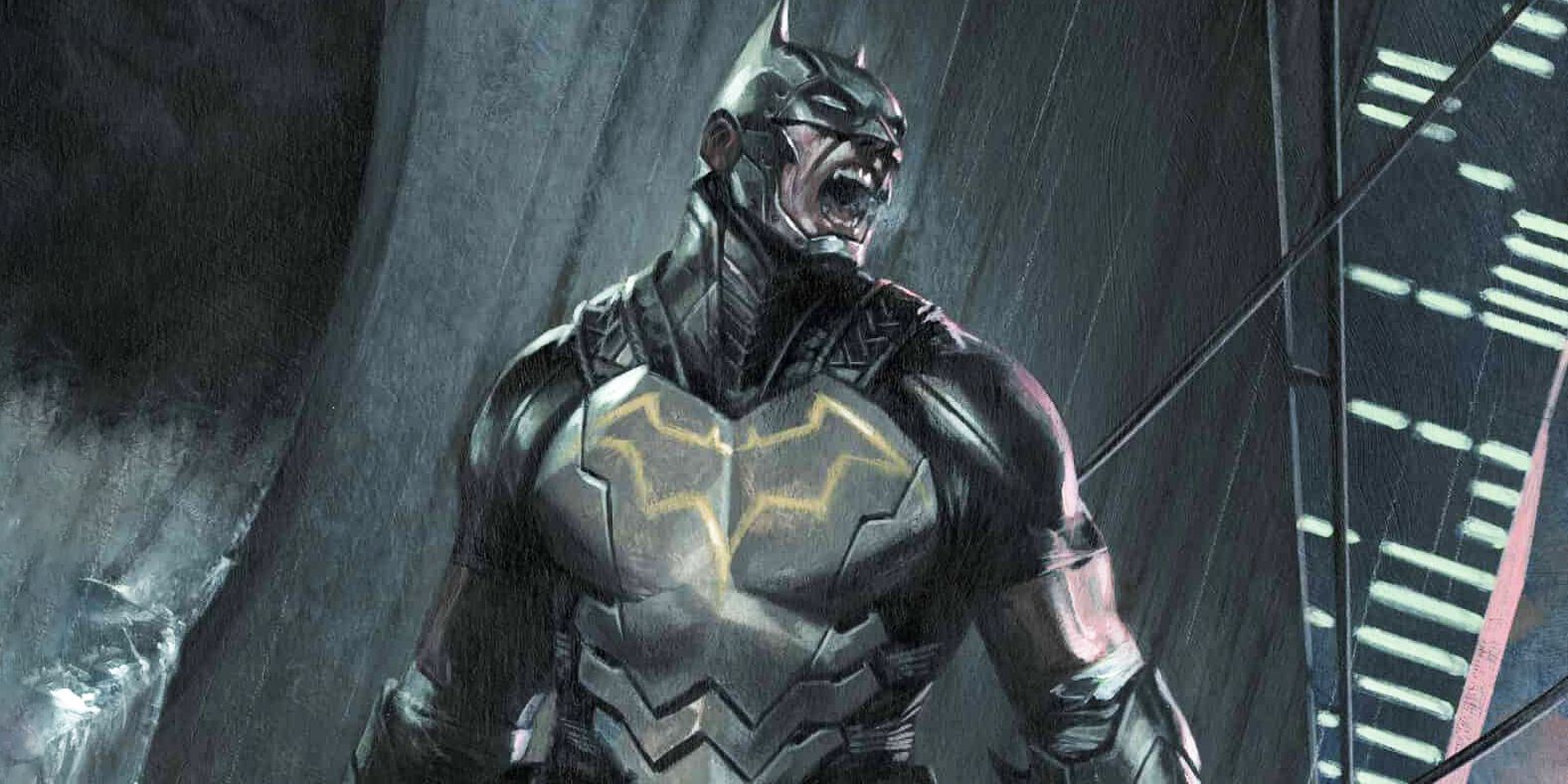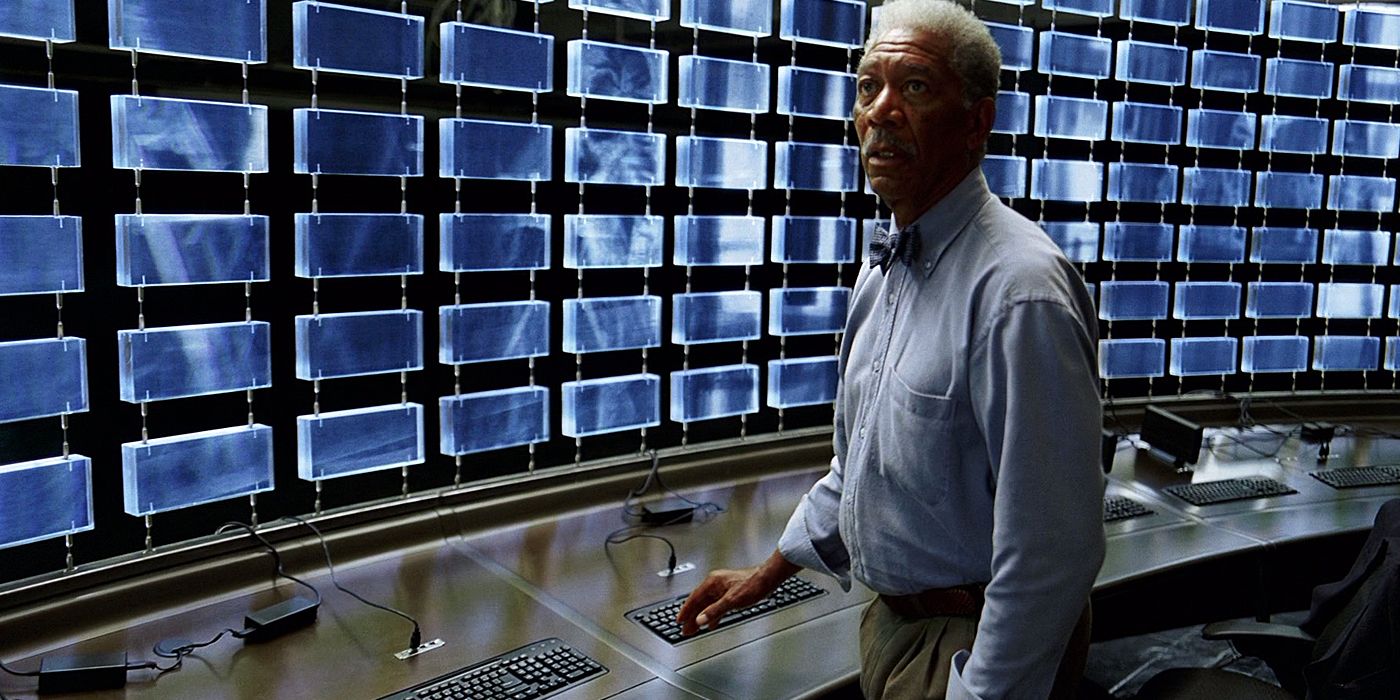WARNING: The following contains spoilers for Future State: Dark Detective #3, by Mariko Tamaki, Dan Mora, Jordie Bellaire and Aditya Bidikar, on sale now.
The Gotham City of Future State no longer belongs to the Batman but rather to the Magistrate, an authoritarian villain who tightly controls the entire city with his advanced technology and well-armed enforcers. And while vigilantes and masked outlaws are outlawed under penalty of death, Bruce Wayne isn't going to take what's become of his hometown lightly. Batman faked his death to focus on dismantling the Magistrate's rule. And as the Dark Knight's new, desperate crusade begins in earnest, Bruce witnessed firsthand the dangers of one of his most controversial weapons as it's used against him and the rest of Gotham.
Recovering from his epic fall from grace, Bruce rearms himself as Batman and dives headfirst into this dystopian, cyberpunk vision of Gotham. As the Caped Crusader sits above one of Gotham's main city squares, he observes that the Magistrate has eyes on the city at all times from all points from a fleet of nano-drones that provides the villain with eyes from the sky. While the Magistrate has every inch of the city covered as part of his oppressive surveillance state, Batman realizes that he will have to find a way to locate a blind spot in this Big Brother system if he hopes to catch the Magistrate off-guard.
Batman's visible contempt for the surveillance tactics come off as a bit hypocritical in comparison to similar strategies used by the Dark Knight to keep his city safe in the past. The most notable instance of this comes from the 2008 film The Dark Knight when Bruce quietly developed a system to hack into the entire cell phone network of the city and emits a sonar signal that allows him to have eyes on all of Gotham. Lucius Fox was appalled by the mass invasion of privacy and ethical implications, agreeing to help Batman locate the Joker with the technology but with the ultimatum that he would resign if the system remained active. Understanding Lucius' concerns, Batman had already built in a killswitch that destroyed the system after the Joker was neutralized.
This type of mass surveillance was utilized by Batman several times in the comics, with one of the more visible instances in the 1996 miniseries Kingdom Come by Mark Waid and Alex Ross. As Bruce's body began to fail him after enduring numerous grievous injuries, he monitored his city from the safety of the Batcave using a fleet of imposing robots; a precursor to the advent of aerial, unmanned drones becoming a reality. Batman used his robots to fight crime across the city, reasoning that the lack of privacy yielded tangible results in his lifelong crusade.
The characters of the DC Universe, and by extension the fans, let Batman get away with occasionally employing his own surveillance system because he's the Batman; they know as paranoid and controlling the Dark Knight can be, he always maintains Gotham City's best interests at heart. However, the surveillance state has been taken advantage of by the Magistrate to create his own overarching system to tighten his grip on Gotham, turning one of Batman's more controversial tools against him. However, the Magistrate never counted on Batman turning the tables by using his own tools against him as the true surveillance mastermind in Gotham.


